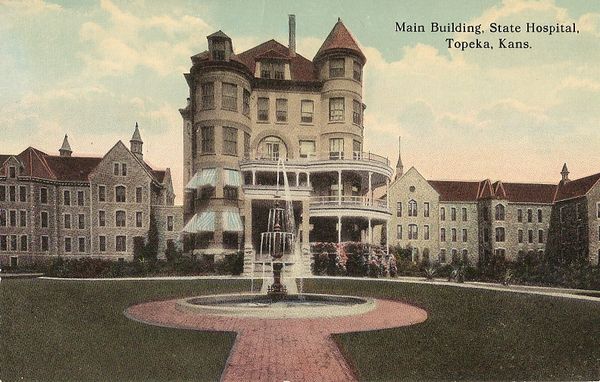Difference between revisions of "Portal:Featured Image Of The Week"
From Asylum Projects
M-Explorer (talk | contribs) |
M-Explorer (talk | contribs) |
||
| (266 intermediate revisions by the same user not shown) | |||
| Line 1: | Line 1: | ||
{{FIformat | {{FIformat | ||
| − | |Image= | + | |Image= TopekaPC (4).JPG |
| − | |Width= | + | |Width= 600px |
| − | |Body= [[ | + | |Body= [[Topeka State Hospital|The first two ward buildings]], accommodating 135 patients, opened in 1879. Dr. Barnard Douglass Eastman resigned as superintendent of the asylum at Worcester MA to become the first superintendent at TSH. The institution was called the Topeka Insane Asylum until 1901 when the Legislature officially changed the name to Topeka State Hospital. Eastman told legislators that patients who were being released to make room for more patients were "well enough to be in a measure useful. All were of a quiet and harmless character." |
}} | }} | ||
Revision as of 04:36, 12 January 2020
Featured Image Of The Week
The first two ward buildings, accommodating 135 patients, opened in 1879. Dr. Barnard Douglass Eastman resigned as superintendent of the asylum at Worcester MA to become the first superintendent at TSH. The institution was called the Topeka Insane Asylum until 1901 when the Legislature officially changed the name to Topeka State Hospital. Eastman told legislators that patients who were being released to make room for more patients were "well enough to be in a measure useful. All were of a quiet and harmless character."
